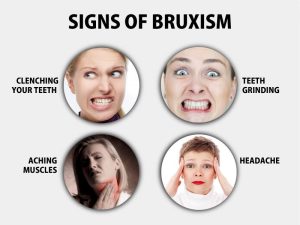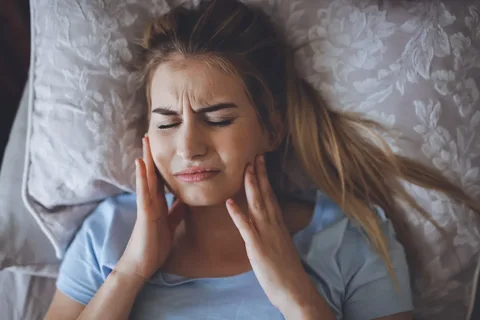Understanding the Pernicious Habit
Teeth grinding, medically known as bruxism, is a common yet often overlooked condition that affects individuals of all ages. It typically occurs during sleep, although some people may also experience it during waking hours, especially when under stress. This subconscious grinding or clenching of the teeth can have detrimental effects on oral health, leading to worn enamel, tooth fractures, jaw pain, headaches, and disrupted sleep patterns. Explore More About (Motion Sickness)
The Silent Nighttime Agony
For many sufferers, bruxism remains unnoticed until its consequences become apparent. The discomfort often manifests as morning headaches, facial pain, or aching jaws, leaving individuals puzzled about the cause. Over time, untreated bruxism can escalate into more severe dental issues, potentially requiring extensive and costly treatments.
Identifying the Triggers
Understanding the underlying triggers of teeth grinding is crucial for effective management. While stress and anxiety are primary culprits, other factors such as misaligned teeth, sleep disorders like sleep apnea, or lifestyle habits like excessive caffeine intake can exacerbate the condition. Identifying these triggers empowers individuals to adopt targeted strategies to alleviate bruxism.

Tips for Mitigating Bruxism
1. Stress Management Techniques
Implementing stress-reduction techniques such as mindfulness meditation, deep breathing exercises, or yoga can significantly reduce bruxism episodes. Engaging in relaxing activities before bedtime promotes a state of calmness, easing the tension that often contributes to teeth grinding during sleep.
2. Custom Mouthguards
Consulting with a dentist to obtain a custom-fitted mouthguard is a proactive approach to protect teeth from the damaging effects of bruxism. These oral appliances act as a physical barrier, preventing the surfaces of teeth from grinding against each other and minimizing wear and tear.
3. Orthodontic Treatment
In cases where misaligned teeth or jaw discrepancies contribute to bruxism, orthodontic interventions may be necessary. Correcting dental alignment not only improves oral function but also alleviates the strain on jaw muscles, reducing the likelihood of nocturnal teeth grinding.
4. Limiting Stimulants
Reducing the consumption of stimulants such as caffeine and nicotine, particularly in the hours leading up to bedtime, can mitigate bruxism symptoms. These substances not only exacerbate stress levels but also stimulate muscle activity, potentially intensifying teeth grinding during sleep.
5. Establishing a Relaxing Bedtime Routine
Creating a soothing bedtime ritual can signal to the body that it’s time to unwind and prepare for sleep. Activities such as taking a warm bath, listening to calming music, or practicing gentle stretching exercises can promote relaxation and diminish the likelihood of nocturnal bruxism episodes.

6. Seeking Professional Guidance
For persistent or severe cases of bruxism, seeking professional guidance from a dentist or healthcare provider is imperative. They can conduct a comprehensive evaluation to identify underlying factors contributing to the condition and recommend appropriate treatment modalities, ranging from oral appliances to behavioral therapy.
Mouthguard vs. Orthodontic Treatment
| Feature | Mouthguard | Orthodontic Treatment |
|---|---|---|
| Effectiveness | Provides immediate protection | Addresses underlying dental issues over time |
| Convenience | Easily removable and portable | Requires regular visits for adjustments and monitoring |
| Cost | Relatively affordable upfront | May involve higher initial investment |
| Long-term Impact | Protects teeth from further damage | Corrects dental alignment for lasting benefits |
Conclusion
Bruxism poses a significant threat to oral health and overall well-being, yet with proactive measures and targeted interventions, its impact can be mitigated. By understanding the triggers, adopting stress management techniques, and seeking professional guidance when needed, individuals can reclaim peaceful nights and safeguard their smiles against the silent agony of nocturnal gnashing.




